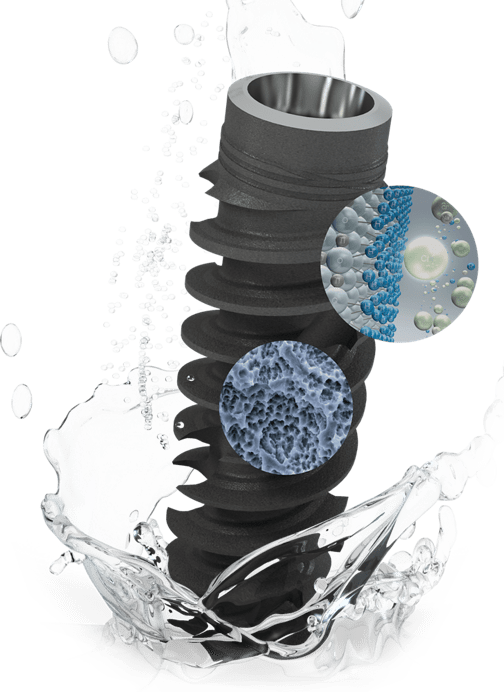If you have just had dental implant treatment, or perhaps if you are only thinking about having dental implants and want to know what to expect afterwards, these dental implants aftercare instructions will be useful for you.

Please note that these are basic and generic instructions, and depending on your specific treatment, there may be additional care that may be required. If you’ve had treatment with me, please contact the practice using the details in your aftercare package or online; if you have had treatment elsewhere, please contact your surgeon for advice.
1. Follow Your Surgeon’s Instructions
First and foremost, follow all the aftercare instructions provided by your surgeon. This might include prescribed medications, recommended rest periods, and specific advice tailored to your personal health or the specifics of your surgery.
Your schedule and plans should have been checked prior to surgery, but it is generally sensible to avoid any significant events such as holidays, important meetings, birthdays, etc., within the first 2 weeks following surgery. This is partly so that you will not be in any discomfort or have any swelling during this time, but also in case you need to see the surgeon within this period.
2. Manage Swelling and Pain
Everyone is always surprised about how little pain they experience after implant surgery, regardless of complexity. Part of this is to do with how gentle your surgeon is (we are known to be particularly gentle!) but generally, most patients say the actual treatment and after effects were less than a tooth extraction. Any soreness is manageable with normal over the counter painkillers such as paracetamol and ibuprofen.
Swelling is a normal part of healing, and increases over 2-3 days after surgery before going down again. Using ice packs immediately following treatment can help. Bigger surgeries will naturally cause larger swellings, but what we hear from patients is that it looks worse than it feels and it really was not painful. If you are having actual excessive pain which cannot be controlled with painkillers, please see point 6.
Bleeding is really not expected apart from some oozing and a taste of blood. If you do experience what looks like excessive bleeding, applying some gentle pressure for 10-20 minutes with a damp tissue over the area should stop it. If you are still worried, please contact your surgeon.
3. Keep Your Mouth Clean
Good oral hygiene is essential for the healing process. Please follow the specific advice given for you, which usually includes a soft toothbrush and a mouthwash from the day after the surgery for 1-2 weeks.
Another point that is often overlooked, is that SLS free toothpaste, which is generally sensitive branded toothpastes, can be better during the healing after implant treatment. This is because, in a simple way, SLS free toothpaste is kinder to the gums.
4. Eat Soft, Simple Foods
Stick to a diet of soft foods – the length of time this is necessary depends on the complexity of your surgery but can vary between 1-2 weeks. Any food that is not hard, crunchy, crusty, chewy or has small particles such as rice/muesli/grains must be avoided. Avoid citrus or spicy foods as they will sting. Avoid hot foods and beverages, specially on the first day when you may be numb, as you may burn yourself and they can exacerbate swelling.
Also stay hydrated by drinking plenty of water and fluids, as this is important for healing.
5. Rest
Your body needs to heal and rest is very important for this. For around a week after your surgery, avoid strenuous activities that could increase your blood pressure or lead to bleeding at the implant site. Activities like yoga where you have to bend your head down a lot should be avoided too.
6. Watch for Signs of Infection
Keep an eye out for signs of infection. The most obvious sign is increasing pain and swelling after the first 3-4 days, which does not improve and does not respond to normal painkillers. If you are concerned at all, it is always best to get in touch with your surgeon. Personally as a surgeon, I would much rather know about things sooner rather than later even if it turns out to be nothing; it is best to check and reassure.
7. Attend Follow-up Appointments
Be sure to attend all scheduled follow-up appointments. These allow your surgeon to monitor the healing process and remove any sutures if necessary.
If you are someone who is thinking about having implants and had more questions, please feel free to get in touch.






